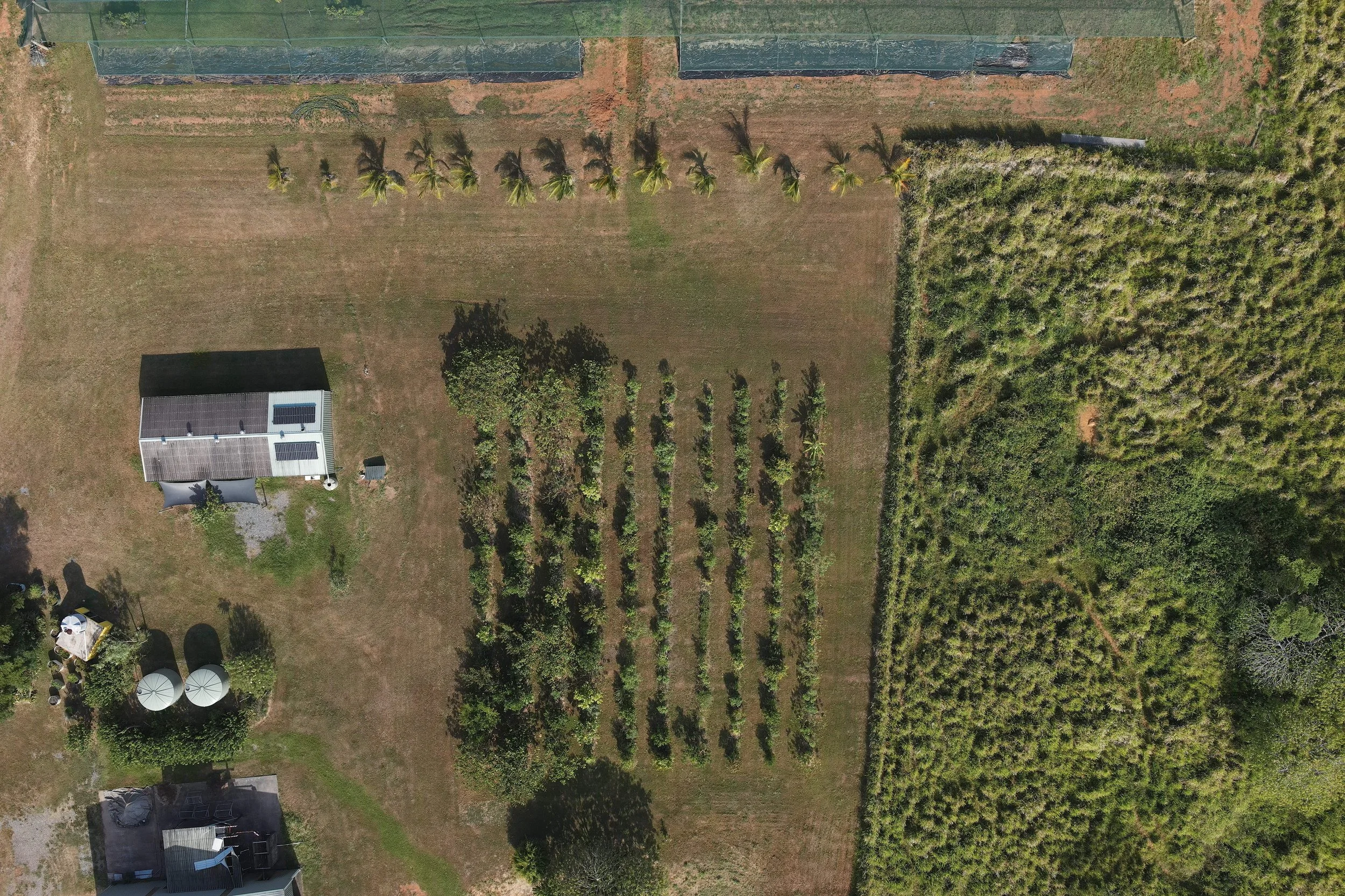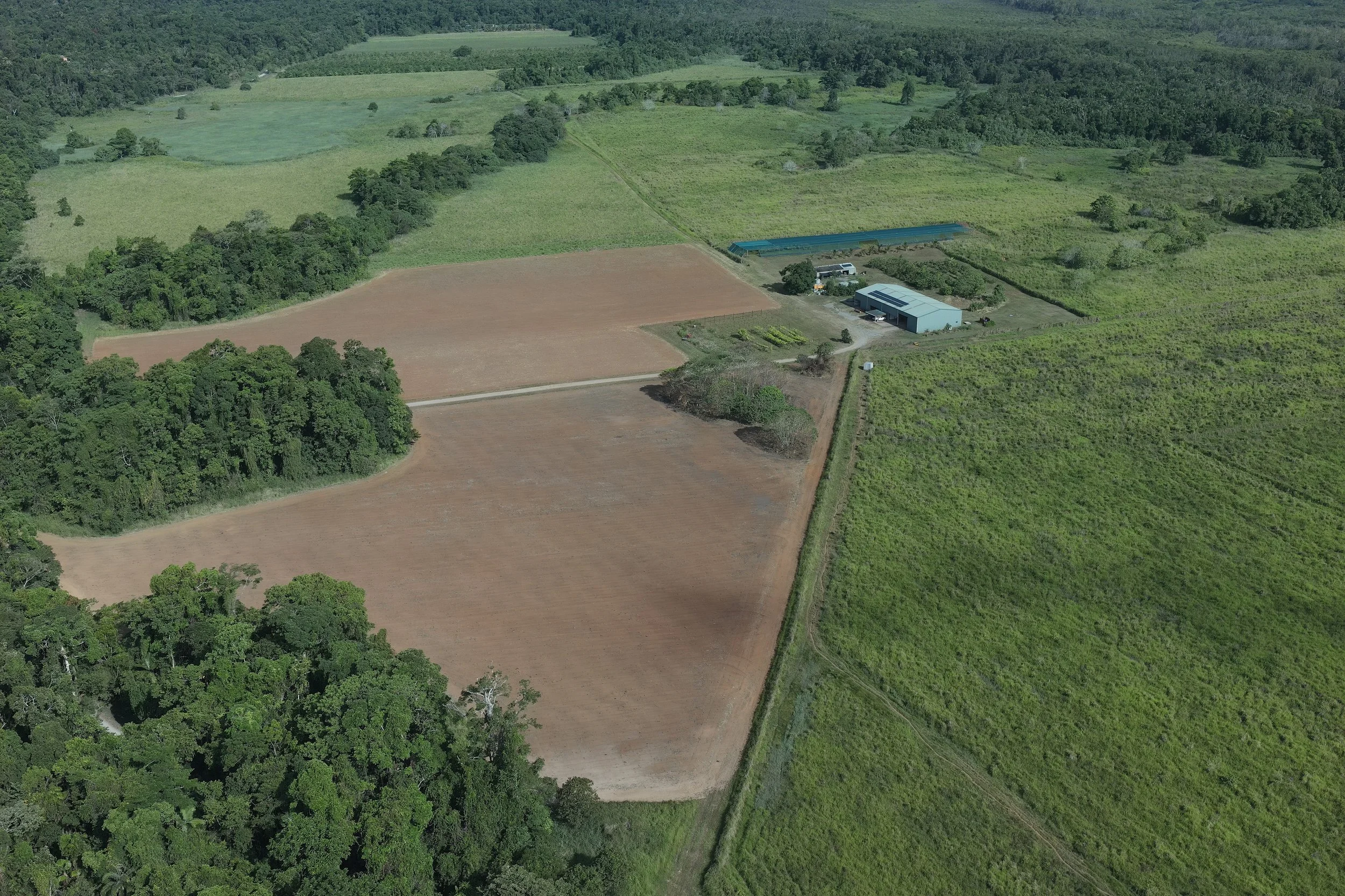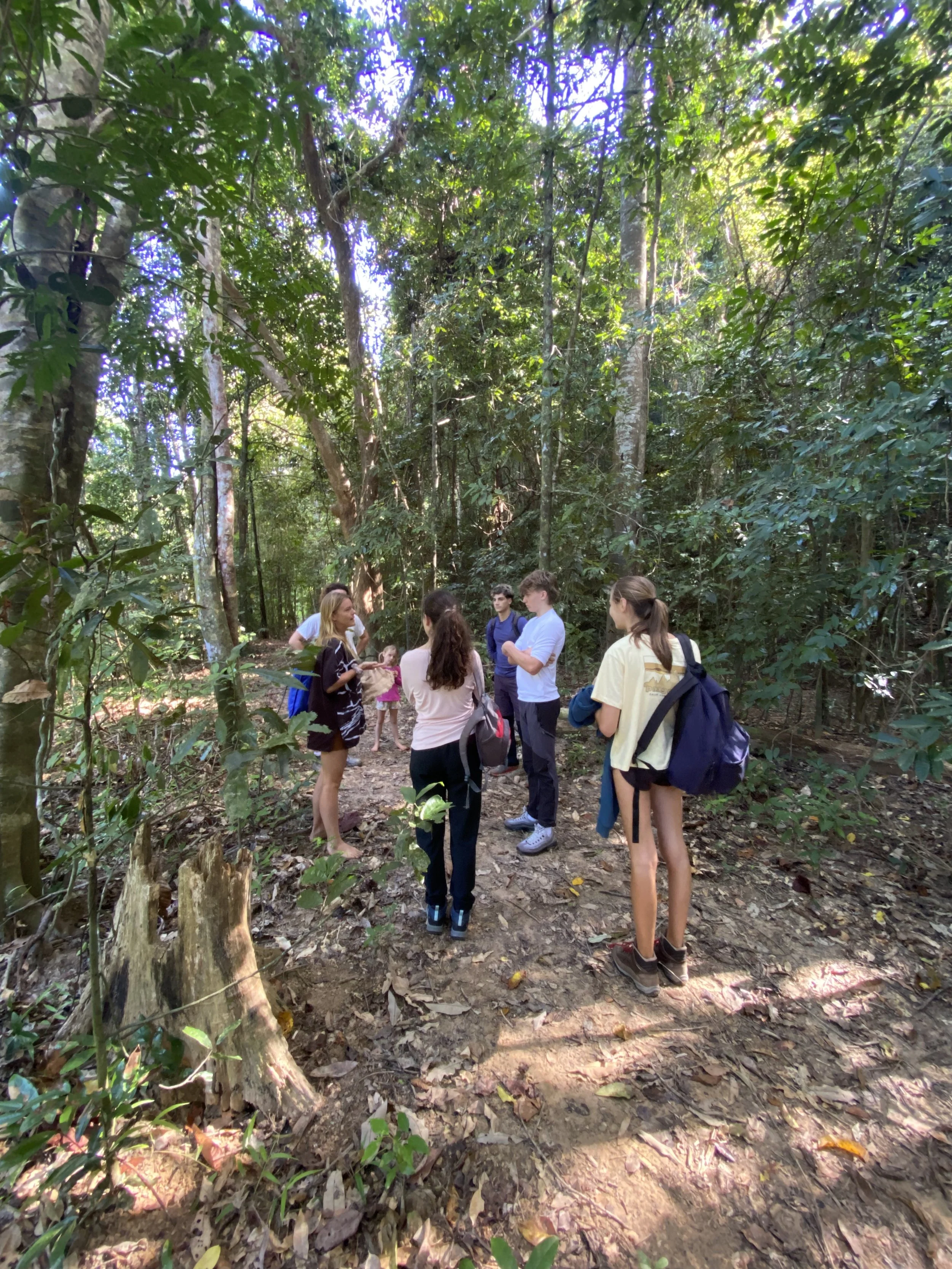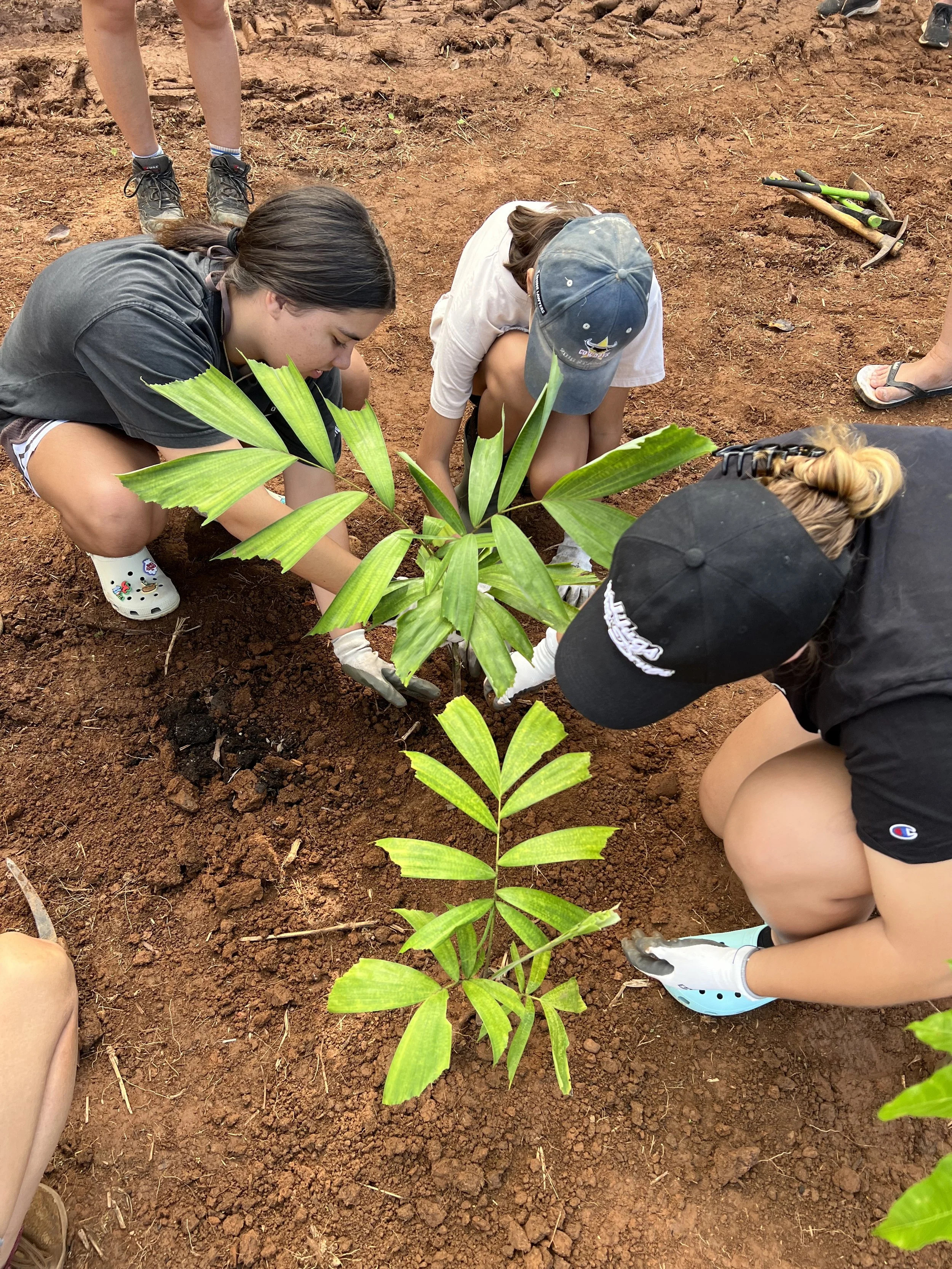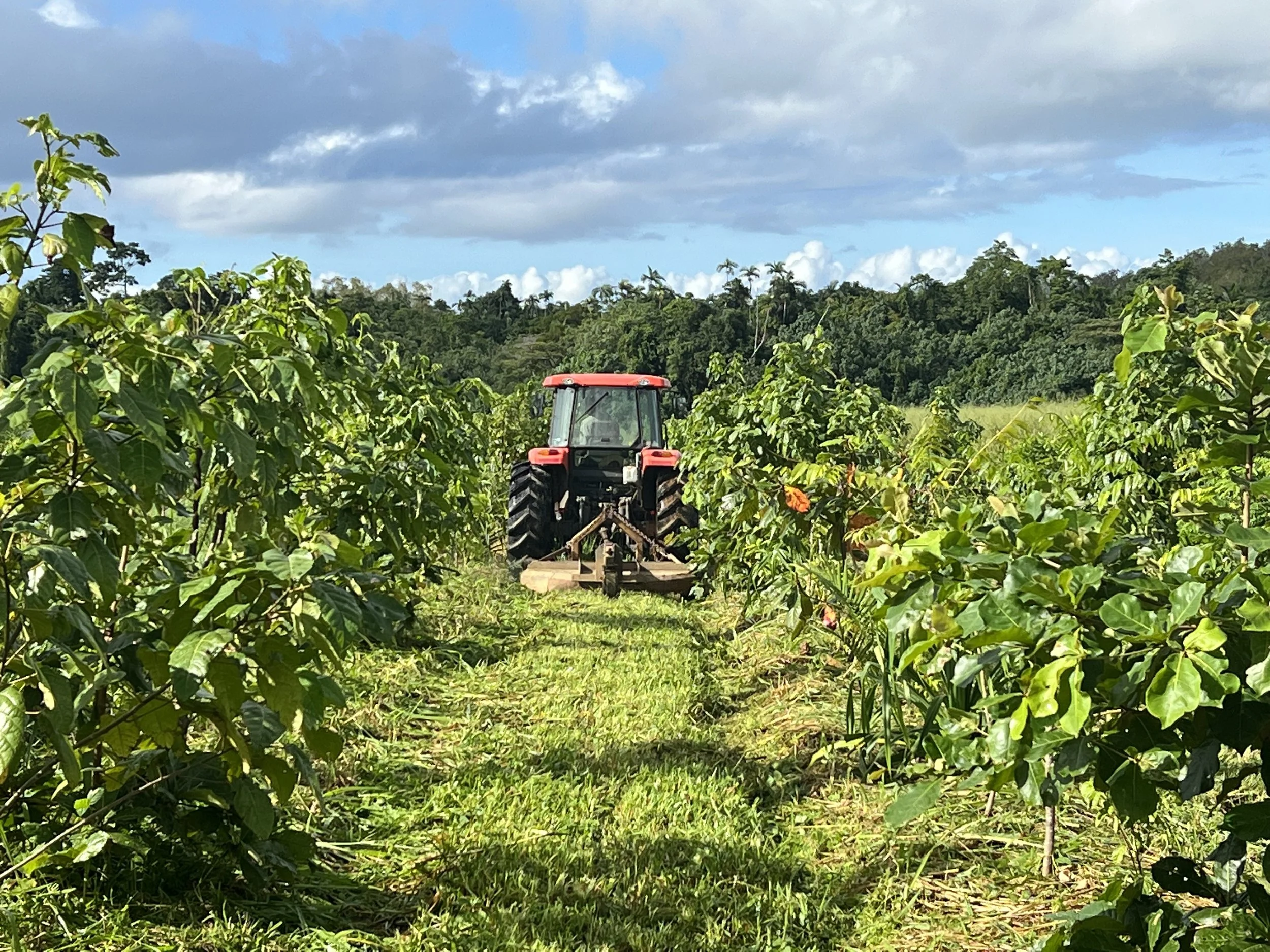Beyond the Mill Era: Growing Green Jobs and Regeneration in Douglas Shire
“Jobs don’t have to cost the Earth - they can restore it. And they can keep our people rooted in the place they love.”
In Douglas Shire, we’re standing at a crossroads.
The recent closure of the Mossman sugar mill has sent ripples through the region - not only closing an era, but creating deep uncertainty for local families. Hundreds of direct and indirect jobs connected to the cane industry are now in question. The ripple effects touch everyone - from mill workers to council, from small businesses to farmers wondering what the next season might bring.
This isn’t just an economic gap - it’s a cultural moment. A question hanging in the humid, tropical air:
Where do we go from here?
Do we watch our youth drift away, seeking jobs elsewhere? Or do we stay grounded, together, and plant new roots - this time with a regenerative future at the forefront? We believe it’s time to turn forced transition into prosperous transformation - and that begins with job opportunities. Real, rooted, green jobs driving our regional economy.
A Moment of Risk - and Regenerative Opportunity
Let’s be clear: cane and cattle have shaped this region. They’ve provided livelihoods, fed families, and built community for generations. But times are changing. Markets are shifting. Climate pressures are rising. And here in Douglas, thousands of hectares of cane land now sit in question, with opportunity to water and fertilise new ideas, and new livelihoods.
We’re not here to replace the past. We’re here to diversify the future.
That’s where regenerative land use practices comes in - a way to care for Country that doesn’t just protect ecosystems, but produces food, supports people, and builds economic resilience at the same time.
From Land to Livelihood: What Land Diversification Looks Like
Here at the research station, we’re developing a hub for Land Diversification Methodologies - innovative systems that reimagine what’s possible on rural and rainforest-fringe land.
Here’s what that looks like on the ground:
Native Rainforest Regeneration - restoring ecological function and biodiversity through strategic planting, soil improvement, and canopy development.
Blended (regeneration and food production) Systems - combining native trees with edible and medicinal plants for both environmental and economic returns.
High-yield Agroforestry Systems - growing localised, marketable crops like bushfoods, tropical fruits, timber, and essential oils.
These systems are already being implemented and trialled across our 213-hectare pilot site - with scalability in mind. They require planning, planting, monitoring, and management - meaning they require people. People with skills. People with care. People who want to work with nature, not against it.
So what do green jobs actually look like in Douglas Shire?
They look like nursery staff sowing seeds for the next generation of forest.
They look like land managers regenerating degraded zones.
They look like camera trap monitors, drone pilots, carbon modelers, and cultural educators.
They look like trained agroforestry workers harvesting fruit, food, and knowledge from healthy land.
Currently, ClimateForce employs six core staff members, with seasonal support during the wet season, and a rotating team of passionate volunteers. But this is just the beginning.
We’re already in conversation with cane farmers exploring how to apply these methods to their own land. We’re working with Jabalbina Aboriginal Corporation to explore how land diversification can support their project areas. And we’re connecting with Terrain NRM to engage local farmers and facilitate knowledge sharing across sectors.
The foundation is laid - the growth will come through community training and access.
Training for a Regenerative Economy
It’s not enough to just have good ideas. People need the tools - and the training - to bring them to life. That’s why ClimateForce aims to host a suite of upcoming workshops and open days, offering hands-on learning in:
- High-yield agroforestry systems
- Broad-acre blended regeneration/production systems
- Pure native rainforest restoration
- Organic land certification support
- Ecological monitoring and data collection
We’re building bridges with local educators, Traditional Owners, and regional institutions to deliver regenerative training on Country. Our youth education camps are already empowering young people through tree planting, cultural exchange, and ecological skill-building - laying the foundation for the next generation of land stewards.
This Is About More Than Jobs
This is about identity. About connection to place. About making it possible for people to stay, thrive, and lead here in Douglas Shire - not just survive on dwindling economic returns.
It’s also about resilience - in the face of climate change, market volatility, and environmental degradation. Diversifying our land use is about diversifying our risk - and building strength into the community at every level.
Regenerative land management isn’t charity. It’s not a fringe movement. It’s a pragmatic, economic, and hopeful response to a changing world. It keeps money flowing locally. It strengthens food systems. It brings cultural knowledge back to the forefront. It reduces fire risk, improves soil health, and boosts biodiversity. And most importantly - it brings people back to the land with purpose.
“The closure of the cane mill signals a chance to rethink land use across Douglas Shire. This is about more than ideas - it’s about land-based outcomes. Repurposing old cane land into diverse, resilient uses can support both reef and rainforest, while creating real value for the region and future generations.”
- Barney Swan, ClimateForce Founder
Let’s Grow What’s Next - Together
No one’s asking anyone to walk away from their roots. What we’re asking is: what else can we grow from them?
The future of Douglas Shire doesn’t lie in just one crop, one industry, or one pathway. It lies in many hands, many minds, and many methods - coming together to regenerate what’s possible.
If you’re a farmer looking to trial new crops, a teacher curious about on-Country education, a young person seeking meaningful work, or a landholder unsure where to begin - reach out, and come to one of our workshop days.
There’s a place for you in this growing story.

